Core country teams
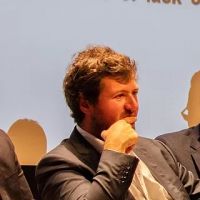
Alessandro Allegra
Alessandro is a science policy researcher and professional interested in understanding and shaping the interface between science, politics, and society in Europe. He is currently doctoral candidate in STS at University College London (UCL), and recently completed a Fulbright-Schuman fellowship in the STS Program at Harvard’s Kennedy School. His research focuses on expert advice in EU policymaking. Coming from a background in philosophy of science, Alessandro has professional experience in UK, EU, and international science policy, having worked at UNESCO, the Royal Society of London, the UK Royal Society of Biology, and the European Commission. He serves as Secretary of the Association of Italian Scientists in the UK (AISUK) and co-founded the #ScienzaInParlamento science policy campaign in Italy.
Rokia Ballo
Rokia Ballo is a science communicator and researcher whose work focuses on the construction, use and communication of science for policy and intersecting forms of social inequality. She is a Research Assistant for University College London, Co-chair of Science London and has recently started working for Health Services Research UK to promote the use of health research in policy and practice.
Jeremy Baskin
Jeremy Baskin is a Senior Fellow at the Melbourne School of Government where he focuses on the legitimacy and accountability of knowledge experts in policy-making. His other research interests include climate and energy policy and associated technologies, the notion of the Anthropocene, and changing understandings of the authority of science. He is joint co-ordinator of a cross-faculty network of Science, Technology & Society (STS) scholars at the University STS@UoM. In 2017 Jeremy was awarded a PhD in Politics from the University of Melbourne. He also has degrees from the University of London and the University of Cape Town. He has been a Fellow of the Program on Science, Technology & Society (STS) at the Harvard Kennedy School of Government, and a Fellow at the Max Planck Institute for the Study of Societies in Cologne. He has worked at the University of Cambridge’s Institute for Sustainability Leadership, designing and delivering programmes targeted at senior leaders in business, government and civil society.
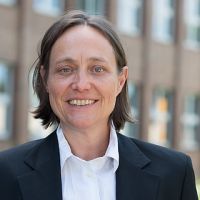
Silke Beck
Silke Beck is an internationally recognized expert in the field of global environmental assessments as well evidence-based policy-making on climate change. She was (co)leading international inter- and transdisciplinary projects on climate change, ecosystem management, innovation and sustainable transformation. Recently, Beck is the principal investigator of the GoST project as part of the Belmont-Norface research programme, “Transformation towards Sustainability”. She is the co-leader of UFZ Science-Policy Expert Group (SPEG) which has contributed to a variety of practical attempts to integrate research insights into recent assessment activities, including the Intergovernmental Panel on Climate Change (IPCC) and the Intergovernmental Platform for Biodiversity and Ecosystem Services (IPBES), such as lead expert nominated for the scoping of the IPBES assessment of transformative change.

Federico Brandmayr
Federico Brandmayr is a postdoctoral research associate at the Centre for Research in the Arts, Social Sciences and Humanities, University of Cambridge, where he is part of Expertise Under Pressure, a project funded by the New Institute Foundation that focuses on the dilemmas and challenges experts face in contemporary societies. He has a background in sociology and philosophy of science and holds degrees from the University of Trieste and Sorbonne University. His research focuses on the cultural authority of science, on legal and political threats to scientific research, and on the involvement of scientists in court cases, both as experts and defendants. He has written extensively on the L’Aquila trial, in which several researchers were prosecuted following a deadly earthquake in central Italy. His work has appeared in Science, Technology, and Human Values, in Social Epistemology, in Science as Culture, and in the European Journal of Social Theory, among others. In the summer of 2021, he will join the MacMillan Center at Yale University as a postdoctoral associate.
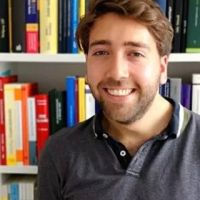
Thomas Buocz
Thomas Buocz is a research associate in Professor Iris Eisenberger’s team since May 2020. His main interests and research areas are technology and innovation law, media law, constitutional law and legal theory. At the Institute of Law, he works within the Horizion2020 research project SCALINGS. He studied law at the University of Vienna and has already worked in Iris Eisenberger’s team both at the Department of Constitutional and Administrative Law at the University of Vienna and at the Institute of Law at the University of Natural Resources and Life Sciences, Vienna.
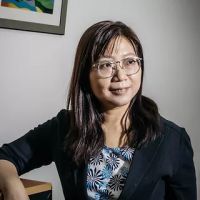
Shun-Ling Chen
Shun-Ling Chen is Associate Research Professor and the co-director of the Information Law Center at the Institutum Iurisprudentiae, Academia Sinica. Her research focuses on science and technology studies, information and society, online collaborations, intellectual property, Indigenous peoples’ law and policy and Indigenous rights.
Iris Eisenberger
Iris Eisenberger is a Professor of Public Law and European Economic Law at the University of Graz. Her research focus includes technology law, public economic law, and the protection of fundamental and human rights. After obtaining her PhD in Law from the University of Graz, Austria, and a Master of Science in Political Theory from the London School of Economics and Political Science, UK, she received her Habilitation for Constitutional Law, Administrative Law, and the related fields of European Union Law for her book on “Innovation in the Law” from the University of Vienna in 2014. After her time as a faculty member at the Department of Constitutional and Administrative Law, University of Vienna, she held a position as Professor of Law and Head of the Institute of Law at the University of Natural Resources and Life Sciences, Vienna, from January 2016 until February 2020.
Florent Escribe
Florent is an undergraduate student at Mines ParisTech attending a research trimester in the STS field. He joined CompCore as his main project for this session.
Ulrike Felt
Ulrike Felt is Professor of Science and Technology Studies since 1999, and Head of the Departement of Science and Technology Studies and of the research platform Responsible Research and Innovation in Academic Practice. After having finished her PhD in theoretical physics at the University of Vienna in 1983, she worked for nearly five years in an interdisciplinary research team of science historians at the European Center for High Energy Physics (CERN) in Geneva studying social, political and scientific aspects in the foundation period of this first big European research institution. During this period her research interests moved into the field of science and technology studies (STS). After her stay at CERN she returned to Vienna, where she took up a position at the newly founded Institute for Philosophy of Science and Social Studies of Science headed by Helga Nowotny. In 1997 she received her habilitation in Science Studies/Sociology of Sciences.

Timothy van Galen
I am a MA student in the Responsibility in Science, Engineering & Technology at TUM, where I work as a research assistant for Sebastian Pfotenhauer on the CompCoRe project. I have a background in Cultural Anthropology and I am writing my thesis on the Covid-19 response in the Netherlands and Germany with a focus on civic epistemologies and the distribution of responsibility between the state, science and citizens.
Emanuela Gambini
Emanuela Gambini is a Teaching Fellow at the Centre for Commercial Studies, Queen Mary University of London and am completing an MSc in Comparative Politics at LSE, London. She has a background in law, being a lawyer specializing in IP, having earned a JD in Law from the Catholic University S.C. in Milan and an LL.M. in Intellectual Property from the WIPO and the School of Law of the University of Turin. She earned her PhD in Commercial Law at CCLS, Queen Mary University of London. Her PhD thesis, entitled “Imagined Nature: Narratives and Metaphors in the Co-production of Biotech Patentable Inventions” addressed how the use of metaphors and narratives has proved pivotal in expanding the scope and settling the meaning of patent eligible matter in several jurisdictions by drawing on STS theoretical frameworks. In 2006,Emanuela was a Fellow in the Science, Technology & Society Program directed by professor Sheila Jasanoff at the Harvard Kennedy School and her approach to the problems at the crossroad of technoscience, law and IP is co-productionist.
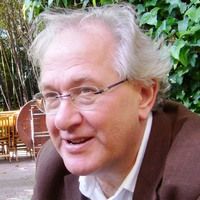
Rob Hagendijk
Rob Hagendijk formally retired as associated professor from the University of Amsterdam in 2014. He continues to work as a member of the Amsterdam Institute Social Science Research and its research group on ‘Transnational Configurations, Conflict and Governance. Since 2012 his main research interest has been the politics of rare diseases and orphan drugs in Europe and beyond.
Maria Hedlund
Maria Hedlund’s research takes up the classical dilemma between democracy and expertise. Her research focuses on uses of expert knowledge in policy-making and the consequences on democracy. This is also the core in her teaching.

Yu-Ling Huang
Yu-Ling Huang is Assistant Professor, Department of Medicine, National Cheng-Kung University, Taiwan. Her research interests include biopolitical knowledge and governance, reproductive health and technology, and vaccination policy and communication.
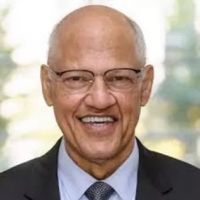
Wilmot James
Wilmot James is a Senior Research Scholar at the Institute for Social and Economic Research and Policy (ISERP) in the Faculty of Social Sciences at Columbia University in New York City. An academic by background with a Ph.D. from the University of Wisconsin at Madison, Wilmot was previously a Member of Parliament (South Africa) and Shadow Minister of Health. He served as the Chairman of the Democratic Alliance (DA), the official opposition, between 2010 and 2016. Wilmot is the author and/or editor of seventeen books that include the policy-oriented Vital Signs: Health Security in South Africa (Johannesburg, 2020), essays on the public understanding of science titled Nature’s Gifts: Why we are the way we are (Johannesburg, 2010) and an edited collection of Nelson Mandela’s presidential speeches Nelson Mandela in his Own Words (London, 2003) with forewards by Kofi Annan and Bill Clinton, which was presented to the late Mandela on his 85th birthday in July 2003. Dr. James served on the Board of Trustees of the Ford Foundation between 1996-2008. He has teaching experience from the University of the Western Cape and University of Cape Town and post-doctoral and visiting professorial experience from Yale University, Indiana University, Edinburgh University, the Open University and California Institute of Technology. At Columbia University, he teaches a course on catastrophic risks and conducts research in the areas of biosecurity, catastrophes and vulnerable populations, particularly children, with a focus on Africa.
Kohta Juraku
Kohta Juraku is a professor at Tokyo Denki University (TDU), Japan. He has worked on sociological studies of the governance of risky technologies and the social-learning process from major technological failures. Before joining TDU, he worked at the Department of Nuclear Engineering and Management at the University of Tokyo from 2008 to 2012, during which he spent over a year at the Department of Nuclear Engineering, UC Berkeley as a visiting scholar. He co-organized a series of “social scientific literacy” summer school for engineering students, as well as he was involved in many other activities to promote interdisciplinary collaboration between nuclear engineers and social scientists. He received his PhD from the University of Tokyo for his research on the social-decision making process of nuclear and other energy issues. As a sociologist of science and technology, he has conducted participant observation of nuclear experts’ responses to the Fukushima nuclear disaster both in Japan and US. He has over a decade of experience in collaborative but critical exchange with engineers and practitioners in nuclear and other fields.
Sang-Hyun Kim
Sang-Hyun Kim is Associate Professor at the Critical Global Studies Institute, Sogang University. Originally trained as a materials chemist (D.Phil., Oxford), Kim later switched to the humanities and social sciences and received his Ph.D. in history and sociology of science from the University of Edinburgh. Prior to joining Sogang, he did his postdoctoral work at the Harvard STS Program, and then worked as a faculty member at the Research Institute of Comparative History and Culture, Hanyang University, Korea. Drawing on the intersections between STS, critical development studies, environmental history, and intellectual history, Kim’s recent research has focused on the contextual analysis of the transnational formation, dissemination, and transformation of development discourse, knowledge, and practices—as well as of developmentalism and growthism as forms of governmentality—especially in Korea and other East Asian countries.
Åsa Knaggård
Åsa Knaggård’s research is about the relation between science and politics. She studies the role of ideas and scientific knowledge and uncertainty in how political problems are defined and decisions are made. She also studies decision-making under risk and uncertainty from a more conceptual perspective, including a focus on robust decision-making. A third theme in her research is how responsibility for policy action is divided between actors (both public and private) and between political levels, and to what extent responsibility is accompanied by formal competence.
Kunhan Li
Kunhan Li is currently a PhD History and Politics candidate at the University of Nottingham, Ningbo, China. He studied for his MA International Relations degree at the University of Chicago, and before that he acquired his BA Hons International Relations degree at the University of Nottingham, UK. His PhD dissertation is titled “Emerging New Order in Outer Space: Explaining International Cooperation and Competition in the New Space Era”. His research includes IR theories, global governance, great power politics, and politics of technology and science. He is now also a part of the Comp-Core China team working together with Dr. Maximilian Mayer.
Luca Elisa Lindner
Luca Elisa Lindner is a graduate student based in Vienna. She currently finishes the STS Master’s program at the Department of Science and Technology Studies at the University of Vienna. Her research interests lie at the intersection of (scientific) expertise, policymaking and civil society, particularly in relation to drug policy, research, and use. She currently works at the STS Department Vienna in the EU Horizon 2020 project Smart4Health, in the context of which she contributes to the development of a citizen-centered digital health platform in an interdisciplinary team.
Bastien Lafon
Bastien is a student at Mines ParisTech. Singularly interested in issues at the crossroads of the public and private sectors, especially in energy, sustainable development and economic fields.
Brice Laurent
Brice Laurent’s research focuses on the relationships between innovation and democracy, and uses the theoretical approaches and empirical methods of Science and Technology Studies (STS). He has published books on emerging technologies and the democratic issues they raise (Democratic Experiments. Problematizing nanotechnology and democracy in Europe and the United States, MIT Press, 2017), and on the politics of regulation (Labelling the economy. Quality and value in contemporay markets, with Alexandre Mallard (eds.), Palgrave, 2020 ; European Objects. The troubled dreams of harmonization, MIT Press, 2021). Brice Laurent’s current works relate to the political dimensions of technological projects, in domains such as city experiments and natural resources.
Philip MacNaghten
Phil Macnaghten is Professor in the Knowledge, Technology and Innovation Group. He is an interdisciplinary social scientist working at the interface of science and technology studies, public engagement studies, governance of emerging technology, and responsible innovation. Phil has a strong track-record in making his work accessible to natural scientists that is reflected through publications in flagship journals aimed at communicating social science governance debates in current scientific issues. With colleagues Richard Owen and Jack Stilgoe, Phil has been central to the conception, development, diffusion and institutionalization of the discourse of responsible innovation, both in the UK and internationally.
Luca Marelli
Luca Marelli is a Marie Skłodowska-Curie fellow (2018-2020) with the Life Sciences & Society Lab, researching on the politics of biomedical innovation of the European Union. Luca lectures on bioethics and Science and Technology Studies (STS) at the University of Milan, and he is member of the Science & Democracy Network (SDN) and the Belgian Science, Technology and Society network (BSTS).
Gabriela Marques di Giulio
Gabriela Di Giulio is Associate Professor at Environmental Health Department, School of Public Health, University of São Paulo. She holds a PhD in Environment and Society (University of Campinas, UNICAMP). She co-heads the research group Environment and Society (Institute of Advanced Studies – IEA USP) and integrates the Interdisciplinary Climate Investigation Center – INCLINE/USP. Her current research program focuses on the human dimension of climate change; crises, risks and uncertainties; science-policy-communication interactions; global health and sustainability.
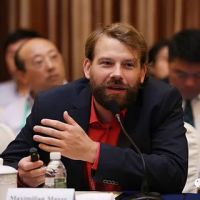
Maximillan Mayer
Dr. Maximilian Mayer is Junior-Professor of International Relations and Global Politics of Technology at University of Bonn. He worked assistant professor at the University of Nottingham Ningbo China, was a Research Professor at Tongji University, Shanghai, senior researcher at the Munich Center for Technology in Society, Technical University Munich and served at the Bonn University’s Center for Global Studies (CGS) as managing assistant and senior fellow. Maximilian research interests include the global politics of science, innovation, and technology; China’s foreign and energy policy; global energy and climate politics; theories of International Relations. Maximilian has published seven books including China’s Energy Thirst: Myth or Reality?. He is coeditor of Art and Sovereignty in Global Politics. He was visiting scholar at Harvard Kennedy School’s Program on Science, Technology and Society, and served as co-chair for the STAIR section of the International Studies Association.
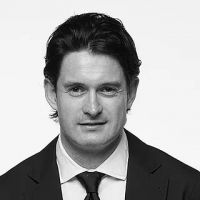
Ian McGonigle
Ian is a scholar of Anthropology and STS. He is interested in the relationships between science, technology and identity. He specializes in contemporary Middle Eastern societies, with a focus on genetic technologies and national development. His more recent research focusses on the relationships between human genome projects and ethnic identity in Asia. Ian came to NTU in 2018 with a Nanyang Assistant Professor start-up grant of SG$1M to launch a science and society research group. He has also been an affiliate of Harvard’s Program on Science, Technology, and Society, since 2013. Ian has Ph.D.s in Biochemistry (Cambridge 2010) and Middle Eastern Studies and Anthropology (Harvard 2018).
Ione Mendes
Ione Mendes is a sociologist and holds a Master’s degree in public communication of science, technology and health. She is currently a doctoral student at the School of Public Health – University of São Paulo – USP.
Marko Monteiro
Marko Monteiro is an anthropologist with a PhD in Social Sciences (University of Campinas, 2005). He has held postdoctoral positions at the University of Texas at Austin (2006-2008) and the University of Campinas (2009). He is currently Associate Professor at the Science and Technology Policy Department, University of Campinas. His research interests lie in Science and Technology Studies (STS) and Anthropology of Science and Technology. He has worked with topics such as sociotechnical controversies; ethnographies of interdisciplinary scientific practice; and visual representation in science. He is currently conducting research related to the governance of science in Brazil, especially focusing on Responsible Research and Innovation (RRI) and the Brazilian response to Covid-19.
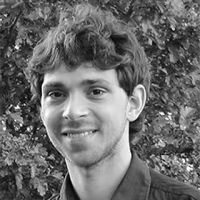
Shai Mulinari
Shai Mulinari is an associate professor and senior lecturer at the Department of Sociology at Lund University. He undertakes research on pharmaceutical regulation, pharmaceutical industry practices and transparency, and policies around health and health-care inequalities. Among other things, his research has investigated how regulatory authorities in the USA and Europe have evaluated influenza drugs and how Nordic countries chose different strategies during the influenza pandemic in 2009.
Julian Nardmann
Julian Nardmann has a master degree in Political Science from the University of Leipzig. His thesis focused on institutional fragmentation in international climate finance. Currently he is working as a research assistant for Silke Beck at the CompCoRe and GoST project. His professional background is in the fields of Political Science, Social Science and Public Law.
Tobias Olofsson
Tobias Olofsson holds a PhD from Uppsala University where he defended his thesis Mining Futures: Predictions and Uncertainty in Swedish Mineral Exploration in October 2020. During his PhD candidacy they were a member of the Uppsala Laboratory of Economic Sociology. Olofsson holds a bachelor and master degree (both in sociology) from Stockholm University.
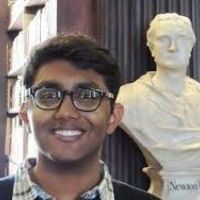
Sharad Pandian
Sharad Pandian graduated from Nanyang Technological University (NTU) with a degree in Physics, and then pursued an MPhil in the History and Philosophy of Science from the University of Cambridge as a Gates-Cambridge Scholar. Pandian has researched the history of astronomy, seismology in the 20th century, and the shift from Newtonian to Einsteinian physics.
Buhm Soon Park
Buhm Soon Park is Professor of History of Science at Korea Advanced Institute of Science and Technology (KAIST). He has authored numerous articles, book chapters, and reviews in the history of quantum chemistry, the history of biomedicine, and the history of East Asian science and technology. He is author or editor of several books, including Bridging the Technology Gap (Seoul National University Press, 2013) and Basic Science in Society (Hanwool, 2016). His recent study explores policy issues at the intersection between science, law, and governance in the areas like stem-cell research, genome-editing technology, and clinical trials industry. He is currently Director of Center for Anthropocene Studies, where he leads the multi-disciplinary study of sensing, governing, and imagining the Anthropocene.
Warren Pearce
Warren is Senior Lecturer at the University of Sheffield, leading the “Knowing Humans” research theme. His work explores how science is used in public debates about politics and policy, with a current focus on three areas: (1) the use of scientific evidence, advice and assessment in policy work; (2) how digital platforms are changing experts and expertise; and, (3) the role of images in online science communication. Warren has researched these themes extensively through a series of journal articles examining the public life of climate change. He also has published research on other prominent cases such as plant genome editing, autism, responsible innovation and the use of randomised controlled trials in policy. Warren employs interpretive, digital and comparative research methods, collaborating with information designers to rethink approaches to visualisation for interpretive research.
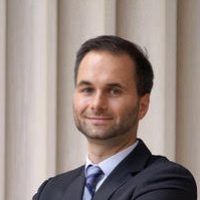
Sebastian Pfotenhauer
Sebastian Pfotenhauer is the Co-Director of the Munich Center for Technology in Society (MCTS) and Carl von Linde Associate Professor for Innovation Research at Technical University of Munich. An STS and innovation policy scholar, Sebastian’s research interests include innovation cultures and strategies, the global circulation of innovation practices, global governance of emerging technologies, and co-creative responsible innovation practices, and capacity-building in science and innovation. He is the coordinator of the Munich Cluster for the Future of Mobility in Metropolitan Regions (M Cube) and of the EU-Horizon2020 project SCALINGS (“Scaling up co-creation: Avenues and Limits for Integrating Society in Science and Innovation”), a flagship initiative investigating the use of new collaborative innovation formats such as living labs and pre-commercial procurement in robotics, autonomous driving, and urban energy systems. Before joining TU Munich, he was a research scientist and lecturer with the MIT Technology & Policy Program and the MIT Sociotechnical Systems Research Center, as well as a fellow at the Harvard Program on Science, Technology and Society. He has served as consultant on innovation policy to various regional and national governments, as well as for the Organization for Economic Co-operation and Development in Paris, France. He holds an S.M. in Technology Policy from MIT, a PhD in Physics from the University of Jena, Germany, and has received post-doctoral training in STS and public policy at MIT and Harvard.
Nikolaus Pöchhacker
Nikolaus Pöchhacker is currently a University Assistant in the team of Prof. Iris Eisenberger. Before his academic life, he worked as an IT professional. He studied Sociology (BA), Computer Science (EC), and Science and Technology Studies (MA) at the University of Vienna. From 2013 to 2016 he was a research assistant at the Institute for Advanced Studies, Vienna, where he was involved in several projects on RRI. From 2016 to 2020 he was a researcher and Ph.D. student in the Digital/Media/Lab at MCTS, Technical University of Munich, where he investigated the social dimensions of digital technologies and algorithms. In his work he is researching the relationship between democratic institutions, social order, and algorithmic systems in various domains, bringing together perspectives from Media Theory, STS, Computer Science, and Sociology. Most recently, he is exploring the impact of algorithmic procedures and digital legal technologies on the legal system.
Sujatha Raman
Sujatha Raman is Associate Professor and Director of Research and Reader at CPAS. Trained in science and technology studies (STS), she is exploring the contribution that science communication research and practice can make to science, technology and innovation in the public good. Raman was previously Co-Director of Research at the Institute for Science and Society (ISS), University of Nottingham (UK) and Director from 2016-18 of the Leverhulme Research Programme, “Making Science Public: Challenges and Opportunities”.
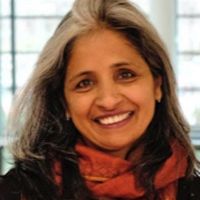
Bhargavi Rao
Bhargavi S. Rao works at the intersections of community action with law, policy, planning and governance. She has 25 years of experience across research, advocacy, campaign and teaching on a variety of human rights, governance and people-centred efforts in areas of environmental and social justice. She is currently Deputy Director, Centre for Financial Accountability and a trustee at ESG where she guides research initiatives and legal interventions. She has worked with the Public Health Foundation of India, Azim Premji Philanthropic initiatives and was Co-Director, International Honours Programme (Boston University & SIT) & Minnesota Studies in International Development, University of Minnesota. Her areas of research include environmental decision-making processes in the context of Mega Infrastructure Projects, Renewable Energy, Biodiversity, Waste Management, Governance, Public health, Urban issues and Traditional Livelihoods. She was a member of the SDG committee, GOK on goal 15. She teaches on faculty led Study Abroad programmes & is guest faculty at universities abroad, local educational institutions and corporates. She has contributed research papers in leading science journals, chapters to books and articles in magazines and dailies. She has contributed research papers in leading science journals, chapters to books and articles in magazines and dailies. The last year she has anchored a series of webinars on various public health and environment related themes and has been a speaker on many topics related to environmental and Social justice issues.
Felipe dos Reis Campos
Felipe RC is PhD candidate in University of São Paulo. His research interests concentrate in Media Studies, New Frames and Social Arenas.
Leo Saldanha
Leo F. Saldanha is full-time Coordinator of Environment Support Group (ESG), a research and advocacy initiative based in Bangalore, India. He has wide-ranging experience in Environmental Law and Policy, Decentralisation, Urban and Regional Planning and a variety of Human Rights and Development related issues gained from working across many sectors for about three decades. He is actively engaged in advancing research and advocacy initiatives on critical environmental and social justice concerns across India, and with several global research and advocacy networks. In addition, he is involved as Principal Investigator of the India component of the international project entitled ‘Governance of Socio-Technical Transformation’, a collaborative initiative of Harvard Kennedy School (USA), Helmholtz Institute (Germany), SPRU-Sussex University (UK), African Centre for Technology Studies (Kenya) and ESG. He is a key researcher in the multi country research project on COVID controversies initiated by Harvard Kennedy School and Cornell University. Leo has guided several initiatives to promote progressive environmental laws, and decentralisation and devolution of governance, to support effective participation of local communities in decision making. He was the Country Coordinator and Faculty of the “Cities in the 21st Century” and “Health and Community” courses of the International Honours Programme, Boston University, now part of School of International Training, USA (2002-2009), and served as Co-Director of the Minnesota Studies in International Development, University of Minnesota, USA (2014-2017).
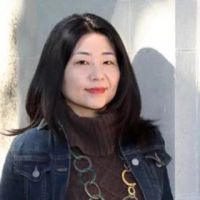
Kyoko Sato
Kyoko Sato is Associate Director of the Program in Science, Technology, and Society at Stanford University. Her research examines technoscientific governance in Japan and the United States. At present, she is investigating the dynamics and relationships among global and national nuclear and radiation governance, expertise, and democratic citizenship. She is co-editing a collective volume (with Soraya Boudia and Bernadette Bensaude Vincent), Living in a Nuclear World: From Fukushima to Hiroshima, an interdisciplinary post-Fukushima reflection on the development of the global nuclear order. Her previous work examined interdisciplinary knowledge production in the United States and the politics of genetically modified food in France, Japan, and the United States. She has published in journals such as Science, Technology and Human Values; East Asian Science, Technology and Society; Theory and Society; and 科学技術社会論研究 (Journal of Science and Technology Studies; in Japanese) and book chapters on the 2011 Fukushima disaster both in English and in Japanese. She worked as a journalist in Tokyo before pursuing her PhD in sociology from Princeton University.
Jack Stilgoe
Jack Stilgoe conducts research on the governance of emerging technologies, including genetically modified crops, nanotechnologies, geoengineering, machine learning and self-driving cars.
Mariachiara Tallacchini
Mariachiara Tallacchini is professor of Philosophy of Law at the Faculty of Economics and Law, Università Cattolica del Sacro Cuore (Piacenza, Italy) and of Science, Law, and Democracy at the International School for Advanced Studies (SISSA, Trieste – Italy).
She earned a degree in Law and a PhD in Legal Philosophy (University of Padua), and worked as a postdoctoral fellow in the STS programme at the Kennedy School of Government (Harvard University), where she also attended the Centre for the Biology of Transplant at MGH-Harvard Medical School, working on the regulatory aspects of xenotransplantation. She has been a consultant to the Italian Parliament and the Italian Commission of Bioethics, and collaborated with the WHO Regional Office of Rome on Environment and Health. Between 2007 and 2009 she has chaired the European Advisory Group on Science in Society for FP7. From 2013 to 2015 she worked as Senior Scientists at the European Commission Joint Research Centre (JRC, Ispra). Her interests concern the legal regulation of science and technology and the relationships between science and democracy, especially in the domain of the life sciences and their interfaces with ICT.
Mikihito Tanaka
Alberto Matenhauer Urbinatti
Alberto Matenhauer Urbinatti holds a PhD in Public Health from the School of Public Health of the University of São Paulo (FSP/USP). He was a fellow at the Fundação de Amparo à Pesquisa do Estado de São Paulo from May 2017 to June 2020. He studied themes related to governance and public policies in cities, nexus between water, energy and food and governance of science and technology. He studied risks, impacts and policies associated with climate change in megacities in Brazil and China. He is currently developing a post-doctoral research at the Department of Scientific and Technological Policy (DPCT) of UNICAMP as a member of the Rede Covid-19 Humanidades and the CompCoRe project, led by Prof. Stephen Hilgartner (Cornell University) and Prof. Sheila Jasanoff (Harvard Kennedy School).
Andreas Vilhelmsson
Andreas Vilhelmsson is a public health researcher and public health consultant with a broad interest in different aspects of human health, but with a special focus on issues concerning global health, environmental health, mental health, pharmaceuticals (regulation, toxicology and pharmacovigilance), climate change, pandemics, nudging, AI and digitalization. Currently, he is working as a research assistant in a research project at the Division of Occupational and Environmental Medicine, Lund University looking at different environmental exposures and risk of cerebral pares. He is also involved in a project with the Department of Diagnostics, Acute and Critical Care at Institute of Health and Care Sciences, University of Gothenburg looking at how nudging techniques can be used in a clinical setting to achieve a more person-centered care. Andreas is also affiliated with the Division of Social Medicine and Global Health at the Department of Clinical Sciences Malmö, Lund University. Outside Academia, he serves as an editor for the PLOS Early Career Researcher Community Blog, a forum for the next generation of scientists and science writers and also as a lead subject editor for Elsevier’s multidisciplinary open access journal Social Sciences & Humanities Open.

James Wilsdon
James Wilsdon is an interdisciplinary social scientist who works on the governance and management of science and research, and the relationship between evidence and decision-making. Over his career, in addition to academic posts at the universities of Sheffield, Sussex and Lancaster, he has worked in public policy, think tanks and at the UK’s national academy of science. Since 2016, he has been based at the University of Sheffield, where he is now Digital Science Professor of Research Policy and Director of the Research on Research Institute (RoRI) – an international consortium of research funders, academic institutions, and technologists working to champion transformative and translational research on research.
Ningjie Zhu
Ningjie is a student in the Department of Entrepreneurship, Marketing and Management Systems at University of Nottingham Ningbo China. He is a member of Dr. Maximilian Mayer’s research team.
Affiliate country teams
Melina Galdos Frisancho
Melina Galdos’ research focuses on understanding how the different actors in an innovation system perceive and act on innovation by examining the case of inclusive innovations in Peru. Her research interests revolve around the role of universities, organisations’ normative expectations, and researchers’ values and beliefs around the potential of innovation to overcome global challenges of poverty and social exclusion. In 2016, Melina was awarded a ‘Jóvenes Líderes Iberoamericanos’ (Young Ibero-American Leaders) Scholarship to represent Peru in a leadership programme organised by the Fundación Carolina and Fundación Rafael del Pino. This experience prompted an interest in researching development in Latin America from an innovation perspective. After a year at the University of Glasgow, from where she obtained an MRes in Public Policy Research, Melina was awarded a full scholarship from the Science Policy Research Unit and the University of Sussex Business School to undertake a PhD in Science and Technology Policy Studies.

Wilmot James
Wilmot James is a Senior Research Scholar at the Institute for Social and Economic Research and Policy (ISERP) in the Faculty of Social Sciences at Columbia University in New York City. An academic by background with a Ph.D. from the University of Wisconsin at Madison, Wilmot was previously a Member of Parliament (South Africa) and Shadow Minister of Health. He served as the Chairman of the Democratic Alliance (DA), the official opposition, between 2010 and 2016. Wilmot is the author and/or editor of seventeen books that include the policy-oriented Vital Signs: Health Security in South Africa (Johannesburg, 2020), essays on the public understanding of science titled Nature’s Gifts: Why we are the way we are (Johannesburg, 2010) and an edited collection of Nelson Mandela’s presidential speeches Nelson Mandela in his Own Words (London, 2003) with forewards by Kofi Annan and Bill Clinton, which was presented to the late Mandela on his 85th birthday in July 2003. Dr. James served on the Board of Trustees of the Ford Foundation between 1996-2008. He has teaching experience from the University of the Western Cape and University of Cape Town and post-doctoral and visiting professorial experience from Yale University, Indiana University, Edinburgh University, the Open University and California Institute of Technology. At Columbia University, he teaches a course on catastrophic risks and conducts research in the areas of biosecurity, catastrophes and vulnerable populations, particularly children, with a focus on Africa.
Ernesto Mori Macedo
Ernesto Mori-Macedo is majoring in Education, with an emphasis on Philosophy and Social Sciences at Antonio Ruiz de Montoya University in Lima, Perú. His lines of research are the History of Latin American integration, and the relationships between pedagogy, subjectivity and mental health in public schools.
Sidrotun Naim
During the course of the current pandemic of COVID-19, Sidrotun Naim has contributed in providing policy recommendation to the Office of the President of Indonesia, the Vice Minister of State-Owned Enterprise, the Governor of West Java, and the Mayor of Surabaya. She has appeared on various national media, sharing to the public about issues around COVID-19. An active member of KawalCovid19, crowdsourced database and information with high accuracy, from the public and for the public, Naim is also a volunteer for the Phase-3 Clinical Trial for CovaVac in Bandung, West Java. A microbiologist (aquaculture and medical) trained at the University of Arizona and Harvard Medical School, Naim has secondary interests in science policy, also leadership and decision sciences after her study at Harvard Kennedy School.
Enrique Rojas Villalba
Enrique Rojas Villalba is a Postdoctoral Associate in the Department of Earth and Atmospheric Sciences, Cornell University.
Rogelio Scott Insúa
Rogelio is a second year PhD student in the Anthropology Department at Cornell University. Alongside his collaboration with the CompCoRe case study of COVID-19 in Peru, he is also working on an adjacent research project that aims to trace the evolution of the Peruvian population’s explanatory models about COVID-19. His doctoral dissertation focuses on the cultural intersections between genomic medicine, the psy-sciences and disability in Latin America.
Lyal White
Before establishing Contextual Intelligence, Prof. LYAL WHITE was the Founding Director of the Johannesburg Business School (JBS) at the University of Johannesburg in South Africa. In this role he established a world class business school with a focus on growing and scaling new business in Africa, for a lasting impact on society. With a renewed emphasis on Contextual Intelligence, Prof. White writes and advises on strategic thinking, execution and political economy in Africa, Asia and Latin America relevant to the purpose of business, impact and decision making.
Febby Widjayanto
Febby Widjayanto developed an interest in the field of Science, Technology and Society (STS) since she was formally trained in the discipline of politics and development studies at Global Development Institute, University of Manchester. She has got herself conversant with the discourse around the making of science, democracy and public policy that shape her perspective in understanding COVID-19 pandemics as an issue with complex multidimensionality. Her grasp in such areas of study has helped articulate her opinion published on International Policy Digest, to give the wider audience outside Indonesia a sense about how the country managed the COVID-19 crisis. She is also a contributing writer in a book titled Humanity at the Time of Corona Outbreak published by Indonesia’s major publishing company, Balai Pustaka.
Sebastián Zarate Vásquez
Sebastian is a PhD student at NC State’s Forestry and Environmental Resources Department. Sebastian comes from Peru with a background in social sciences. He graduated from Pontificia Universidad Catolica del Peru with a B.A in Sociology and has a master’s in Science and Technology Policy from Arizona State University. He has worked in GRADE (Grupo de Analisis para el Desarrollo) a Peruvian Think Tank that focuses on public policy and co-founded Sidereus Nuncius, a nonprofit that is involved in the governance of science and technology in Peru. He is part of the AgBioFEWS Fellowship at NC State. He is interested in science and technology policy in Latin America, sustainability, emerging technologies, natural resources, and the environment.
